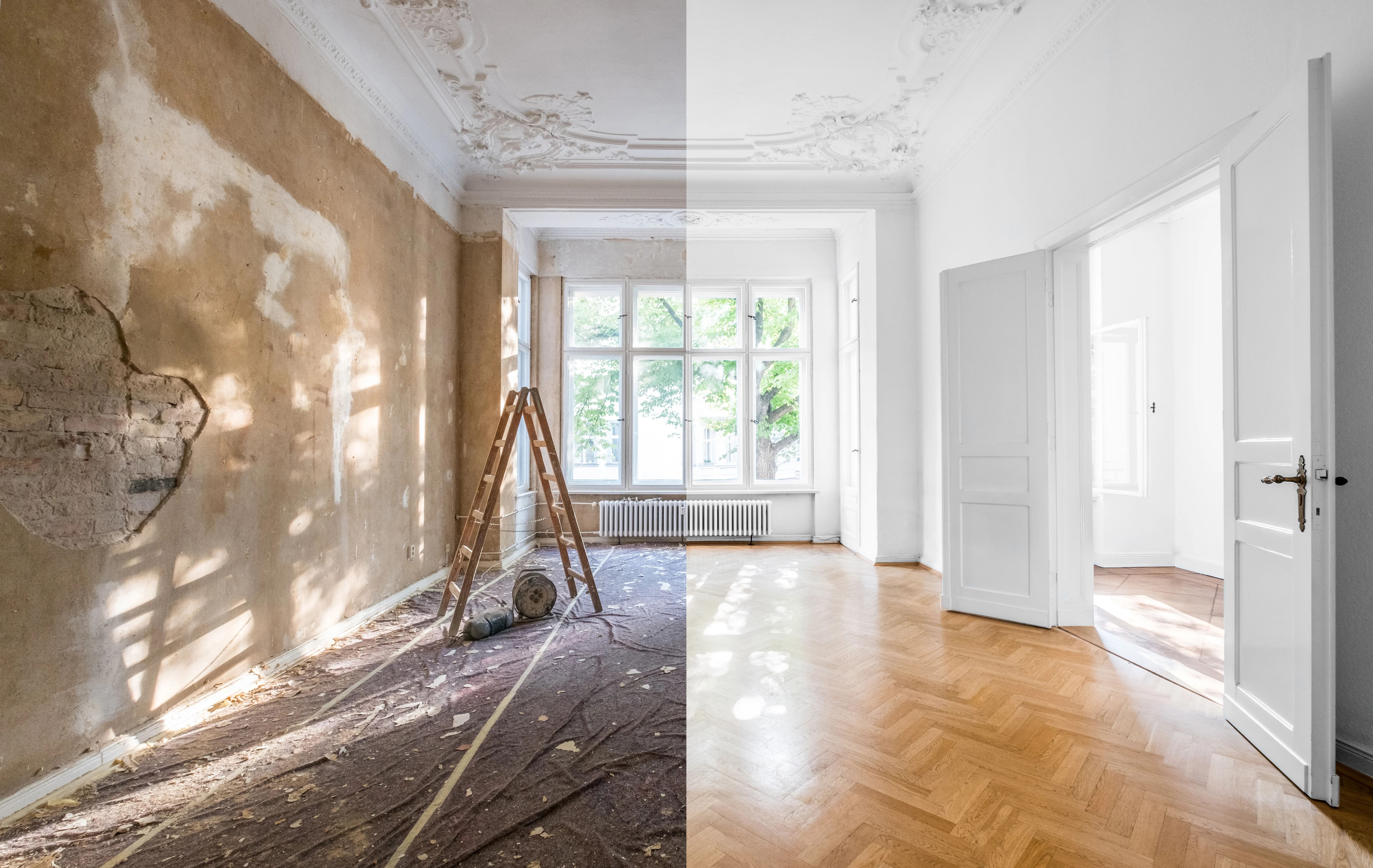Leaving your home’s future up to someone else’s success and expertise is stressful, but most contractors offer some kind of builder’s home warranty. And while that’s important, these warranties can vary around:
- Local laws
- How long the warranty lasts
- What the warranty covers
- The type of job
- Your individual contractor
With so many variables, it’s essential to know what warranty coverage a contractor offers before you sign the paperwork to begin a house renovation, and it’s never a bad idea to purchase additional coverage for your newly remodeled home in the form of a home warranty.
To learn more, continue reading or use our table of contents to jump to the section most pertinent to you.
Table of Contents
Understand Your Contractor’s Warranty Before You Sign
Before you sign a home remodel contract with a contractor, make sure you understand what he or she is actually offering. Most contractors do offer some kind of guarantee on their work, because doing so protects their interests as well as your own.
While a construction warranty can protect you, the homeowner, from having to live with shoddy work, it also protects the contractor from having to return to fix things over and over again. Offering a warranty also gives the contractor some reputational protection, as it shows they’re a professional who is willing to stand by the quality of their work.
You should ask for warranty information to be clearly spelled out in your contract, so you know what you’re getting and so it’s there for your reference later. You should also make sure you understand the warranty and don’t agree to anything that limits the protections you already have under the law.
Know the Warranty Laws for Contractors in Your Area
To ensure you’re optimally protected by a contractor’s warranty, get familiar with the laws regarding builder and contractor warranties in your area.
Implied Warranties
In the United States, contractors are usually liable for implied warranties, which are those understood to exist under the law but don’t need to be spelled out in a contract. These primarily include two warranties:
The Warranty of Good Workmanship. The warranty of good workmanship implies your contractor will carry out his work in a manner that results in a strong finished product. The Warranty of Habitability. This warranty implies that the completed house renovation or construction will be safe to live in for you, your family, and your pets.
Statues of Limitations & Statues of Repose
These implied warranties are limited by statutes of limitations in each state, which dictate how long homeowners can bring warranty claims against contractors. Statutes of repose, which indicate the length of time for which a contractor can be held liable for his or her work, also exist in most states.
Statutes of repose can apply different terms to different elements of a job. For example, in California, the statute of repose is four years for most problems, but 10 years for latent defects or problems that aren’t readily apparent.
Stay on the lookout for contractors who try to shorten the implied warranty by offering a shorter warranty term—sometimes for as brief a period as one year. Again, state laws vary. Some allow shorter warranty terms; others don’t.
Right to Repair Laws
Many states also protect contractors with right to repair laws, which require the homeowner to give the contractor a chance to repair faulty or defective work before pursuing legal action.
These laws aim to reduce litigation by encouraging communication and resolution between homeowners and contractors.
By allowing contractors to address and fix problems first, these laws help maintain professional relationships and ensure that projects are completed to the homeowner's satisfaction.
Protect Yourself
When you understand your state laws regarding warranty protection for homeowners, you’ll be able to negotiate for what the law says you’re owed.
Know that a contractor’s warranty isn’t going to cover everything in your renovation. It’s not going to cover appliances, for example, although they might be covered by a limited manufacturer’s warranty.
That’s why it’s important to protect your new investment with a home warranty. A home warranty from American Home Shield® will provide coverage for parts of up to 23 home systems and appliances, and all work comes with a 30-day workmanship guarantee on repairs performed by our third-party service professionals.
We have plans and pricing to fit every budget, and you don’t have to show maintenance records to buy a plan or get service. We also have a nationwide network of trusted, qualified Pros, so we can always find the right person for your job — and if we can’t fix your appliance or home system, we’ll replace it up to your plan’s limits.
When you get your home remodeled, you need to protect your investment. Empower yourself to keep your newly remodeled home looking nice. Make sure your finished project is covered with a home warranty and a contract you can understand.




